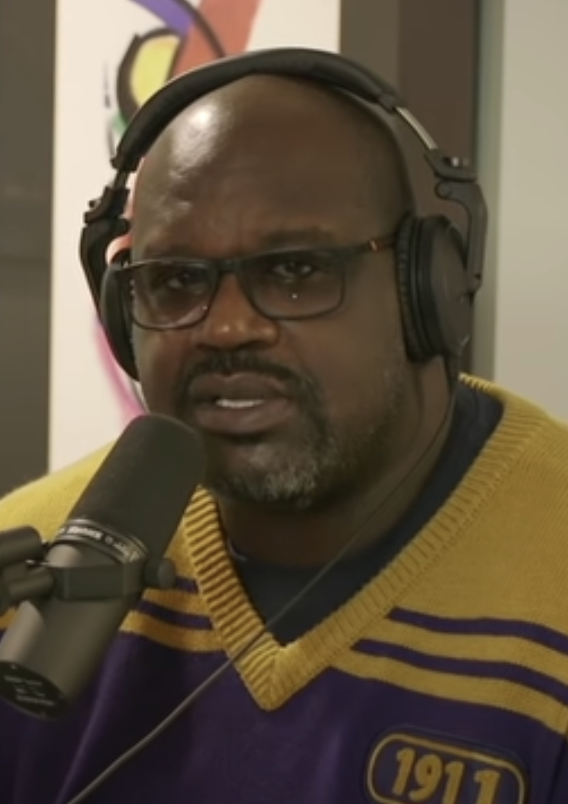
In the grand tapestry of cinema, every film meticulously crafts its central narrative around a protagonist, often a towering figure designed to carry the emotional and plot-driven weight of the story. Yet, sometimes, an unexpected phenomenon occurs: a supporting character, initially conceived to complement the lead, bursts forth with such magnetic intensity and undeniable talent that they don’t just share the screen, they outright commandeer it. These are the performances that linger long after the credits roll, the lines that echo in conversations, and the characterizations that become benchmarks for generations of cinephiles and aspiring actors alike.
This isn’t merely about good acting; it’s about a transcendent fusion of script, direction, and sheer performer brilliance that elevates a secondary role into the undisputed heart of the film. It’s a testament to the idea that screen time is less important than screen presence, that a powerful impression isn’t always tied to the star on the poster. When these supporting stars shine, they don’t just enhance the film; they reshape its legacy, becoming the indelible memory audiences carry away.
We embark on a journey through some of the most captivating instances where the so-called sidekick, the villain, the mentor, or the comedic foil became the undeniable star. These are the cinematic moments that left us quoting the lines, marveling at the nuances, and utterly convinced that the strongest impressions can indeed be left by those initially outside the primary spotlight. Prepare to revisit some iconic films through the lens of their unforgettable scene-stealers.
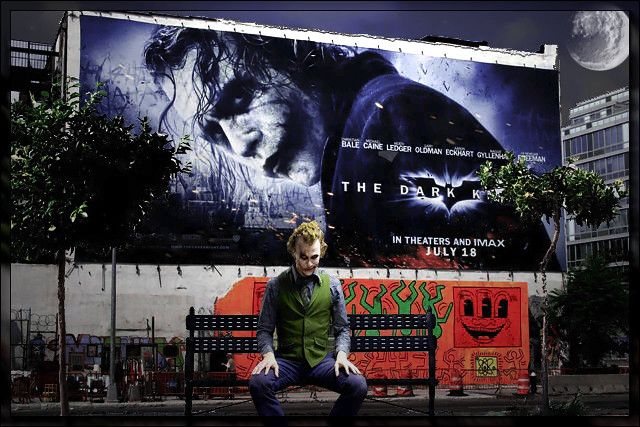
1. **Heath Ledger in The Dark Knight**When Christopher Nolan unleashed *The Dark Knight* upon the world in 2008, Christian Bale’s stoic Batman was the hero audiences came to see. However, it was Heath Ledger’s haunting, chaotic portrayal of the Joker that redefined modern villainy and unequivocally upstaged Gotham’s caped crusader in virtually every scene he graced. This wasn’t just a performance; it was a force of nature, an unnerving descent into pure, unadulterated anarchy.
Ledger imbued the Joker with a chilling blend of wit, unpredictability, and a perverse philosophy that transcended the typical comic-book antagonist. His mannerisms, from the unsettling tongue flicks to the guttural laughter, felt organic and terrifyingly real. The audience wasn’t merely watching a villain; they were witnessing a masterclass in psychological menace, a character whose motivations were as inscrutable as they were compelling.
The role earned Ledger a posthumous Academy Award, a testament to its profound impact, and it has since become the gold standard for cinematic antagonists. Long after the film concluded, it was the Joker’s indelible lines and his unsettling presence that lingered, proving that even in a film centered on a legendary hero, a truly transformative supporting performance can steal the entire show, becoming the defining element of the movie’s cultural footprint.
Read more about: Chameleons of the Silver Screen: Unpacking the Unparalleled Versatility of 14 Iconic Actors Across Genres
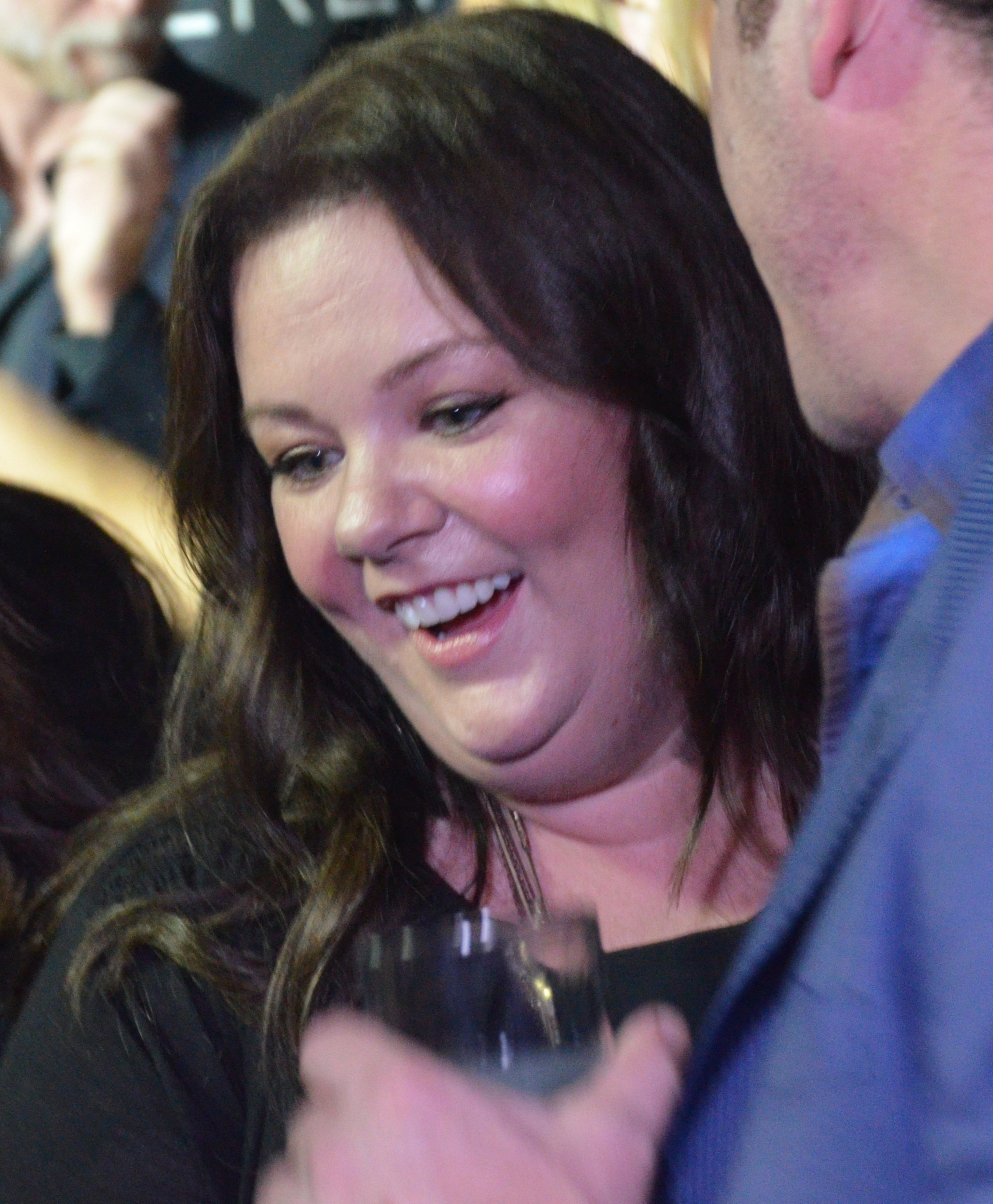
2. **Melissa McCarthy in Bridesmaids**In 2011, *Bridesmaids* promised a raunchy, heartfelt comedy about wedding chaos, anchored by Kristen Wiig’s nuanced lead performance. Yet, from her very first scene, Melissa McCarthy’s fearless portrayal of Megan not only broke through an already talented ensemble cast but also launched a new comedy icon. Her performance was a revelation, combining outrageous humor with a surprising depth of heart that audiences instantly embraced.
McCarthy’s Megan was a whirlwind of unapologetic confidence, delivering absurd lines and performing physical comedy with a commitment that bordered on performance art. Whether she was discussing her previous bowel movements with unblinking candor or delivering a passionate, albeit slightly unhinged, toast, she commanded every frame. Her character was a refreshing counterpoint to the romantic comedy tropes, embracing her eccentricity without apology.
The sheer magnetism of her performance was undeniable; audiences simply couldn’t stop talking about her. Hollywood quickly took notice, and McCarthy’s career exploded, cementing her status as a comedic powerhouse. Her ability to blend crass humor with genuine warmth created a character that was both hilarious and endearing, proving that even in a tightly scripted ensemble, a bold supporting turn can elevate a film and become its most memorable component.
Read more about: Beyond the Lens: 12 Plus-Size Actresses Who Are Redefining Beauty, Owning the Spotlight, and Inspiring a Movement

3. **Tommy Lee Jones in The Fugitive***The Fugitive* in 1993 was Harrison Ford’s vehicle, a thrilling pursuit as Dr. Richard Kimble, a man wrongly accused of murder. While Ford masterfully made viewers root for his character, it was Tommy Lee Jones as U.S. Marshal Samuel Gerard who delivered the sharper, more impactful performance. Jones’s portrayal was a masterclass in combining unwavering authority with a dry, understated humor, instantly stealing every scene he was in.
Gerard was relentless, a man driven by duty and an almost surgical precision in his pursuit. Yet, beneath the grim determination, Jones injected moments of wit and exasperation that humanized the character and made him utterly captivating. His famous line, “I don’t care,” delivered with perfect deadpan, encapsulated the character’s single-minded focus and became an instant classic, endlessly quoted and parodied.
The magnetic quality of Jones’s performance was so potent that it earned him a well-deserved Academy Award for Best Supporting Actor and even inspired a spinoff film. He transformed what could have been a standard law enforcement role into a character of complex layers and unforgettable presence. Gerard wasn’t just chasing the fugitive; he was commanding the screen, demonstrating how a supporting character can become the narrative’s vital, scene-stealing counterpoint.
Read more about: The Enduring Gravitas: Unpacking the Storied Life and Legacy of Tommy Lee Jones

4. **Meryl Streep in The Devil Wears Prada**In *The Devil Wears Prada*, the story nominally centered on Anne Hathaway’s character, Andy Sachs, as she navigated the treacherous world of high fashion. However, from her very first appearance, Meryl Streep transformed Miranda Priestly into an unforgettable symbol of icy authority, effortlessly eclipsing the film’s lead. Every glance, every pause, and every perfectly measured line delivery was a masterstroke, crafting a character that commanded absolute attention.
Streep’s performance was a nuanced exploration of power and intimidation. Priestly wasn’t just a boss; she was an institution, a force of nature whose quiet disapproval could shatter careers. The film showcased her stylistic intimidation, her ability to dissect Andy with a single, perfectly aimed comment, leaving not just the protagonist, but the entire audience, in awe. Streep conveyed a world of unspoken thoughts and chilling expectations with minimal overt expression.
Fashion may evolve and fade, but Streep’s portrayal of Miranda Priestly remains endlessly relevant, a benchmark for formidable female characters. Her ability to imbue such a formidable character with subtle layers of humanity, even if rarely shown, is a testament to her unparalleled talent. This was a supporting performance that became the undeniable gravitational center of the film, making it impossible to imagine *The Devil Wears Prada* without her imperious grace.
Read more about: Beyond the Bell Bottoms: Unpacking the Fates of Hollywood’s Most Iconic 1970s Stars – Where Are They Now?
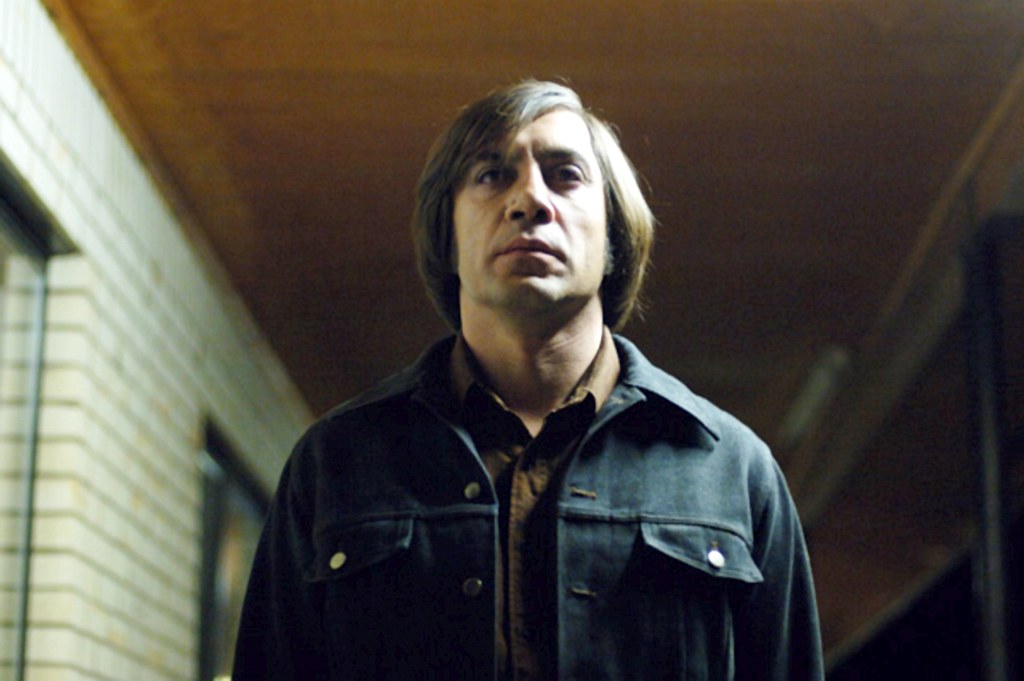
5. **Javier Bardem in No Country For Old Men**When the Coen Brothers unleashed *No Country For Old Men* in 2007, they introduced cinema to one of its most chilling and iconic villains. Javier Bardem’s portrayal of Anton Chigurh was a masterclass in quiet menace, an eerie coin-toss philosophy that carved out a figure of nightmares that commanded attention from his very first appearance. His bizarre haircut only heightened his strangeness, turning him into an instantly recognizable and deeply unsettling presence.
Bardem’s performance was devoid of typical villainous theatrics; instead, he conveyed dread through his relentless pursuit, his dispassionate demeanor, and his chilling commitment to his own skewed moral code. The coin-toss, a seemingly random act of fate, became a terrifying symbol of his indifference to human life, making every encounter with him a nail-biting experience. Chigurh wasn’t just a killer; he was an existential force.
Critics and viewers alike hailed the role as a terrifyingly original performance that redefined what a modern cinematic antagonist could be. It was a portrayal so powerful that it overshadowed the film’s dual protagonists and the very nature of the Coen Brothers’ narrative. Bardem didn’t just play a villain; he embodied a primal fear, solidifying Chigurh as one of the most unforgettable and dominating supporting characters in contemporary film history.
Read more about: The Reel Truth: 14 A-List Actors Who Skip Their Own Blockbusters (and Why!)
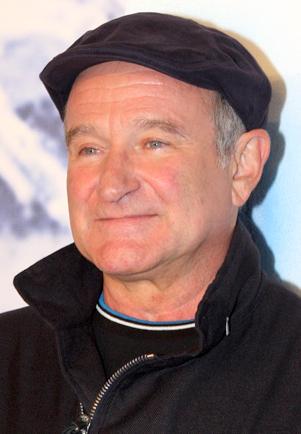
6. **Robin Williams in Dead Poets Society***Dead Poets Society* in 1989 gathered a promising ensemble of young talents, but it was Robin Williams’s portrayal of John Keating that lifted the story to greatness. His passionate teaching style and profound love for poetry inspired not only his students within the film but also generations of audiences who cherished his every word. Williams delivered a performance that transcended mere instruction, turning Keating into a philosophical guide.
Williams masterfully blended his characteristic humor with profound heartache, creating a character that was both intellectually stimulating and deeply empathetic. His immortal call to “seize the day,” or “Carpe Diem,” resonated far beyond the classroom, becoming a cultural touchstone that encouraged challenging societal norms and embracing the beauty of life. He injected the film with an infectious enthusiasm for learning and self-expression.
The emotional depth and sheer charisma Williams brought to Keating made him the undeniable heart of the film. He wasn’t just a supporting character; he was the catalyst for the entire narrative’s emotional arc and intellectual awakening. His performance was a poignant reminder of the power of a single individual to inspire profound change, proving that even among a cast of strong performers, one shining star can elevate a movie to an iconic status.
Read more about: Chameleons of the Silver Screen: Unpacking the Unparalleled Versatility of 14 Iconic Actors Across Genres
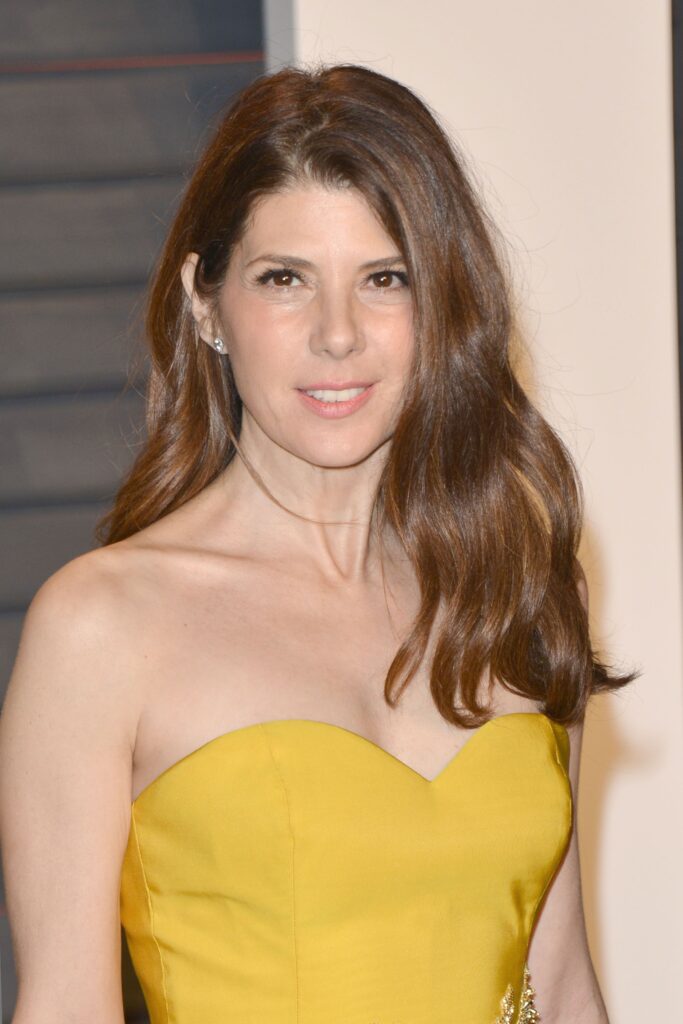
7. **Marisa Tomei in “My Cousin Vinny”**While Joe Pesci delivered an undeniably fantastic performance as the street-smart, leather-jacket-wearing lawyer Vinny Gambini in *My Cousin Vinny*, it was Marisa Tomei’s portrayal of his fiery fiancée, Mona Lisa Vito, that was pure joy to watch and utterly stole the show. Tomei transformed what could have been a stereotypical girlfriend role into a vibrant, unforgettable character brimming with personality and unexpected expertise.
Tomei’s Mona Lisa Vito was sassy, intelligent, and completely magnetic, a dynamic force that complemented and often overshadowed Pesci’s slick lawyer antics. She was not just a sidekick; she was an essential partner, her street smarts and mechanical knowledge proving crucial to the courtroom drama. Her impeccable comedic timing and powerful screen presence made her an instant audience favorite.
The film was a box-office hit, and a significant part of its enduring appeal lies in Tomei’s brilliant turn, which rightfully secured her an Academy Award for Best Supporting Actress. Her famous testimony scene about the ’64 Skylark is nothing short of brilliant, a comedic and intellectual high point that cements her character’s brilliance. Tomei’s performance remains a shining example of how a supporting role, when imbued with such vivacious talent, can become the true star of the film.
Read more about: Totally Tubular: Catch Up With The Iconic Sitcom Queens Of The ’80s – You Won’t BELIEVE Where They Are Now!
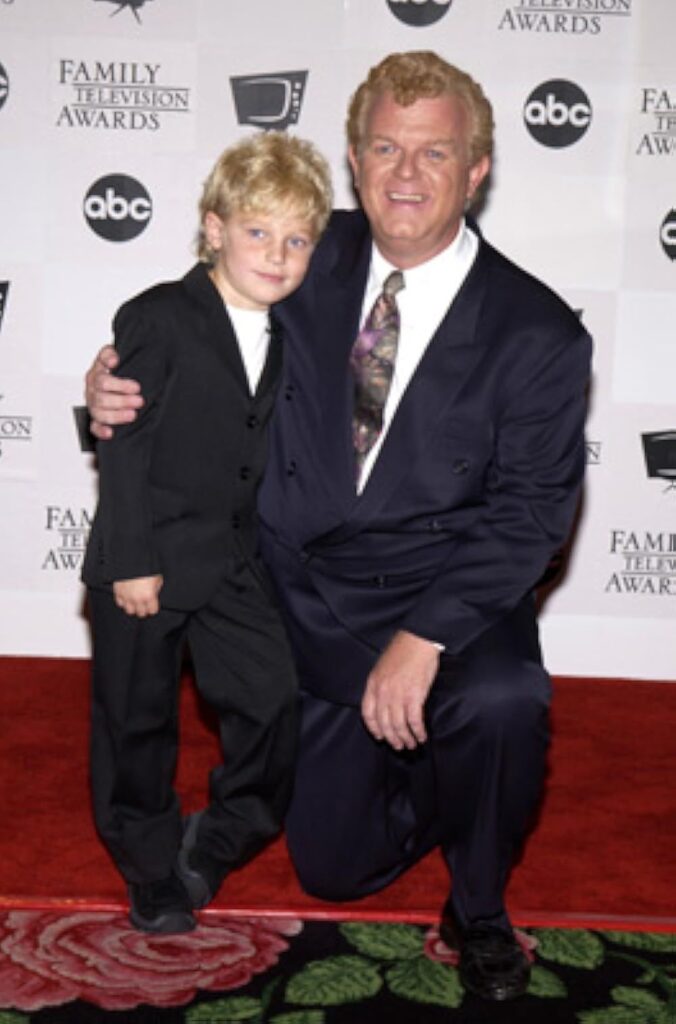
8. **Forest Whitaker in “The Last King of Scotland”**In this historical drama, James McAvoy might have been the nominal lead, portraying Nicholas Garrigan, the impressionable Scottish doctor who unwisely becomes the personal physician to the notorious Ugandan dictator Idi Amin. While McAvoy’s journey through the moral complexities and increasing terror of his character’s situation is certainly compelling, there’s absolutely no denying who the cinematic heavyweight truly was here. The undeniable star of *The Last King of Scotland* is unequivocally Forest Whitaker, delivering an Oscar-winning performance as Amin that transcends mere acting to become a force of nature.
Whitaker’s portrayal is a masterful tightrope walk between terrifying menace and captivating charisma. He transforms Amin into a figure of pure, unsettling power – a dictator whose magnetic personality draws you in even as his brutal unpredictability and casual cruelty chill you to your bones. It’s a performance that doesn’t just demand your attention; it seizes it and adamantly refuses to let go, lingering in your memory and haunting your thoughts long after the credits have rolled.
What makes Whitaker’s work so profoundly impactful is the sheer depth he brings to a figure widely considered a monster. He reveals fleeting glimpses of a man capable of warmth, humor, and even genuine paternal affection, only to snatch them away with sudden, terrifying outbursts of paranoia and violence. This constant oscillation keeps the audience, much like McAvoy’s character, in a perpetual state of unease, never knowing what terrifying facet of Amin will emerge next.
While James McAvoy offers a solid and earnest performance as the conflicted young doctor caught in a web of his own making, it’s Whitaker’s immersive, powerhouse depiction of Amin that elevates the entire film from a compelling historical narrative to an unforgettable, visceral cinematic experience. His ability to embody such a complex, fearsome, and deeply flawed figure, oscillating between benevolent father figure and ruthless tyrant, is nothing short of breathtaking and utterly captivating.
His profound impact was not lost on critics or awards committees; Whitaker’s performance rightfully earned him both an Academy Award and a BAFTA Award for Best Actor. This isn’t just about a great supporting role; it’s about a supporting actor defining the very essence and lasting legacy of a film, proving emphatically that the brightest light often comes from the most formidable and unexpected character.
Read more about: Beyond the Filters: 14 Celebrities Who Are Seriously Slaying by Embracing Their Uniquely Authentic Selves

9. **Bobby Cannavale in “The Station Agent”**Peter Dinklage delivers a nuanced and quietly powerful performance as Finbar McBride in this charming independent drama, a man who actively seeks solitude and a quiet life after inheriting a disused train station. While Finbar’s journey into unexpected friendships forms the film’s narrative backbone, it’s Bobby Cannavale’s relentlessly friendly, irrepressibly talkative, and endlessly optimistic food-truck owner, Joe, who truly captivates the audience and breathes vibrant, infectious life into every scene he graces.
Cannavale’s Joe is a veritable force of nature, a whirlwind of infectious enthusiasm and genuine warmth that provides a stark, yet perfectly balanced, heartwarming contrast to Dinklage’s introverted Finbar. He doesn’t just provide comic relief; he’s a vital emotional conduit, consistently pushing past Finbar’s meticulously constructed walls with an almost disarming sincerity and an unwavering belief in human connection. His character embodies the unexpected, transformative bonds that can form in the unlikeliest of circumstances, refusing to let Finbar — or the audience — retreat into quiet contemplation for too long.
What makes Joe so incredibly endearing is his complete lack of guile or malice; his persistent friendliness is born purely from an authentic desire for human interaction and a genuine affection for those around him. He’s not looking for anything in return, simply eager to share his life and observations. From their initial, awkward encounters to the blossoming of an unlikely, deeply moving friendship, Cannavale’s performance ensures that Joe is far more than a mere comic foil.
His spontaneous kindness, unyielding desire for connection, and boundless curiosity underscore the film’s poignant themes of human interaction, shared vulnerability, and the quiet courage it takes to open up and let others in. He injects the narrative with a palpable sense of hope, camaraderie, and an abundance of much-needed levity, making some of the movie’s most touching and memorable moments resonate deeply with viewers.
It’s a testament to Cannavale’s brilliant comedic timing, his heartfelt delivery, and his magnetic screen presence that Joe becomes such an irresistible and unforgettable presence. He shines so brightly, not by overshadowing Dinklage’s excellent work, but by creating such a distinct, emotionally rich character that the film’s entire emotional landscape feels incomplete without his vibrant energy and unwavering optimism. In a story about finding companionship, Joe is arguably the most compelling and heartwarming reason to keep watching.
Read more about: Beyond the Leads: 15 Scene-Stealing Supporting Performances That Undeniably Outshined the Stars

10. **Hank Azaria in “The Birdcage”**While *The Birdcage*, Mike Nichols’ uproarious American adaptation of the beloved French play “La Cage aux Folles,” is ostensibly a star vehicle for comedy legends Robin Williams and Nathan Lane as the central couple, it’s Hank Azaria who brilliantly and effortlessly walks away with the entire show. His performance as the flamboyant, endlessly eccentric housekeeper Agador Spartacus is nothing short of a comedic tour de force, carving out a character so vividly memorable and hilariously unique that he almost becomes the film’s beating, utterly delightful heart.
Azaria’s Agador is a whirlwind of outrageous accents, broad physical comedy, and unforgettable one-liners, instantly endearing himself to audiences with his unique charm and boundless energy. His dramatic flair, often accompanied by his signature “Guatemalan ‘palatial slave'” outfit and clumsy attempts at dancing, ensures that every moment he’s on screen is an absolute, unadulterated delight. He manages to inject a heightened sense of theatrical absurdity and genuine warmth into the proceedings, making his scenes stand out with infectious joy and unrestrained laughter.
What makes Azaria’s performance truly special and so deeply comedic is his complete, unblinking commitment to the character, no matter how outlandish Agador’s actions or pronouncements might be. He never winks at the camera; instead, he fully embodies Agador’s quirks, from his struggle with proper English pronunciation to his passionate, if often inept, desire to serve his masters. This dedication elevates Agador beyond a simple caricature, making him a genuinely lovable, if utterly chaotic, member of the unconventional family at the film’s core.
Even against the formidable comedic talents of Williams and Lane, who are both at the top of their game and delivering stellar performances, Azaria consistently manages to steal laughs and attention with surprising ease. His impeccable timing, his fearless embrace of physical comedy, and his heartfelt commitment to the character’s unique quirks make Agador a true highlight, elevating moments that could have been mere filler into comedic gold. It’s a testament to his sheer comedic genius that, decades later, audiences still recall his memorable antics and distinct vocal inflections with a smile.
Azaria’s portrayal serves as undeniable proof that sometimes, the most indelible and beloved performances come from the most unexpected corners of an ensemble cast. He doesn’t just support the main narrative; he frequently becomes the main attraction, solidifying Agador Spartacus as an iconic figure in cinematic comedy, a truly unforgettable “palatial slave” whose vibrant, chaotic, and heartwarming presence is felt long after his scenes conclude.
Read more about: Beyond the Leads: 15 Scene-Stealing Supporting Performances That Undeniably Outshined the Stars
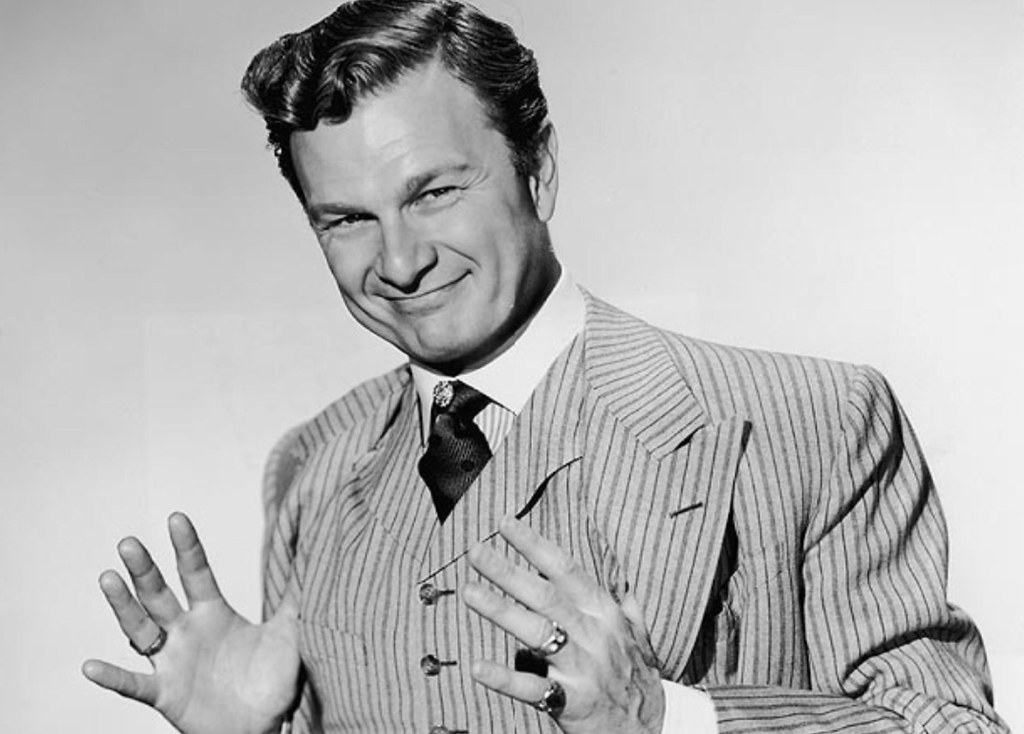
11. **Albert Finney in “Before the Devil Knows You’re Dead”**Sidney Lumet’s gripping and severely underrated thriller, *Before the Devil Knows You’re Dead*, is a masterclass in escalating dread, primarily driven by the desperate and ultimately tragic actions of brothers Andy (Philip Seymour Hoffman) and Hank (Ethan Hawke) as their ill-conceived robbery spirals into unforeseen calamity. Yet, amidst the film’s star-studded cast, its intricate, non-linear narrative, and the intense performances of the leads, it is Albert Finney’s profoundly moving and utterly heartbreaking performance as their devastated father, Charles, that truly resonates and brings an unparalleled emotional depth to this tragic story.
Finney’s portrayal of a man grappling with unthinkable betrayal, raw, unyielding grief, and a burning, all-consuming desire for revenge is nothing short of phenomenal. He embodies a father’s anguish with such authenticity and visceral intensity that his pain feels real, palpable, and entirely relatable, drawing the audience completely into his shattered world and making his suffering our own. His character’s wrenching journey from bewildered victim to resolute avenger is portrayed with a quiet yet formidable power that anchors the film’s increasingly dark and morally ambiguous tone.
What makes Finney’s performance so potent is its complete lack of histrionics, a remarkable feat given the operatic nature of the tragedy. Every nuanced expression, every deep sigh, and every perfectly understated line delivery from Finney speaks volumes about the depth of his suffering and his unyielding, almost primal, quest for answers and retribution. He conveys the immense weight of a lifetime of expectations, disappointments, and buried emotions, all converging in a single, devastating moment. His portrayal is a clinic in acting restraint that only amplifies the profound impact.
His final scene in particular is an absolute gut-wrenching experience, a powerful and deeply affecting culmination of emotional turmoil that leaves an indelible mark on the viewer. It’s a performance that strips away all pretense, laying bare the profound and often destructive impact of familial tragedy and the desperate lengths a parent will go to for a distorted sense of justice, even if it means confronting his own children. He doesn’t just play a role; he truly inhabits a man consumed by the unraveling of his entire life.
Despite the formidable talents of Hoffman and Hawke, who both deliver strong, memorable performances of men pushed to their limits, it is Finney who truly brings the raw emotional gravitas and the unyielding moral center to the narrative. His unforgettable turn ensures that even though the film may have been largely overlooked by both critics and audiences at the time, his devastating portrayal of Charles remains a beacon of powerful, raw human emotion and a definitive example of a supporting performance that commands the screen.
Read more about: Beyond the Leads: 15 Scene-Stealing Supporting Performances That Undeniably Outshined the Stars
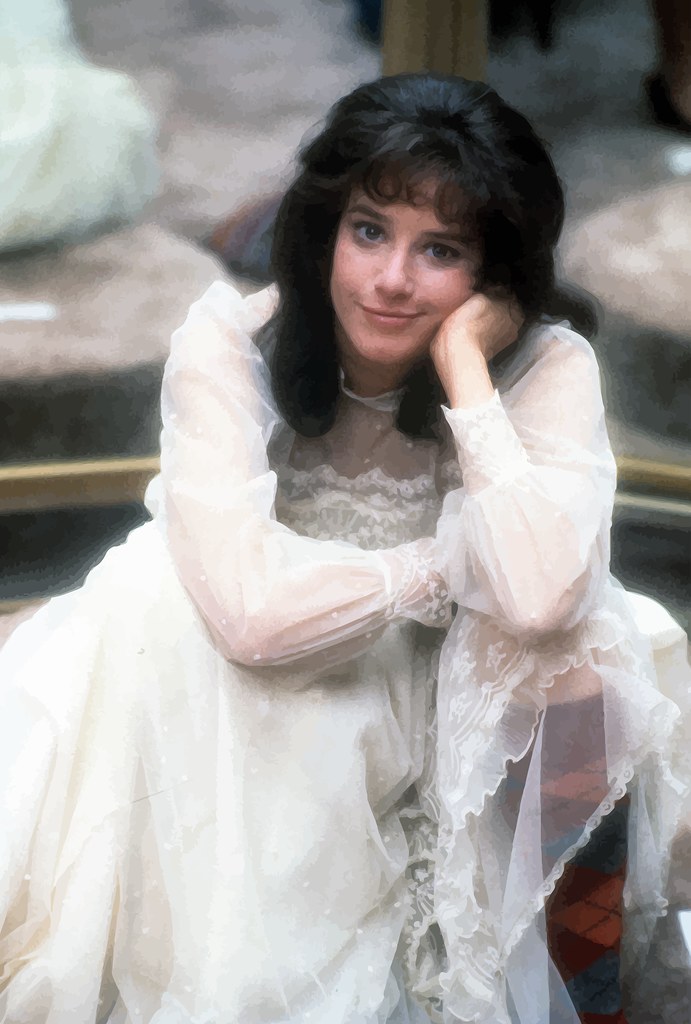
12. **Debra Winger in “Rachel Getting Married”**Jonathan Demme’s *Rachel Getting Married* is a searingly intimate and often uncomfortable family drama, primarily focusing on Anne Hathaway’s Oscar-nominated performance as the troubled Kym, who returns home for her sister’s wedding. While Hathaway admirably carries the bulk of the film’s raw emotional weight and difficult confrontations, it’s Debra Winger, stepping into the role of the aloof, emotionally guarded, and profoundly complex mother, Abby, who truly commands the screen in every scene she graces, demonstrating unequivocally why she remains one of Hollywood’s most potent and captivating actresses.
Winger’s Abby is a masterclass in subtlety and suppressed emotion, a character defined by a detached demeanor that masks a profound well of pain, resentment, and unspoken history. Despite having minimal screen time compared to Hathaway’s demanding lead, Winger manages to convey a plethora of complex, unresolved emotions with chilling effectiveness. She portrays a mother who has seemingly given up on — or been emotionally walled off from — her damaged daughter, yet the underlying current of her anguish, regret, and enduring love is always subtly present, creating an incredibly rich internal world that is palpable to the viewer.
Her performance is entirely convincing, painting a deeply nuanced portrait of a complicated family dynamic where deep-seated wounds, unresolved conflicts, and old resentments dictate nearly every interaction. The tension between Abby and Kym is almost a character in itself, skillfully crafted through Winger’s controlled expressions and precise timing. She illuminates the unspoken battles and long-held grievances that simmer beneath the surface of a seemingly celebratory occasion.
Winger doesn’t need grand monologues or dramatic outbursts to establish Abby’s formidable and often intimidating presence; a quiet glance, a tense silence, a perfectly weighted line delivery, or even a subtle shift in body language is enough to communicate volumes about the pain and history buried deep within her character, creating an unspoken tension that permeates the entire film. Her performance is a testament to the power of unspoken drama.
This poignant portrayal serves as a powerful reminder of why Debra Winger was one of the biggest and most respected stars of the ’80s and continues to be an actress of incredible depth and precision. She proves emphatically that a supporting role, when handled with such exquisite control, nuanced understanding, and an almost surgical precision, can resonate just as powerfully, if not more so, than the lead performance, grounding the film’s turbulent emotional landscape with an unshakeable, yet vulnerable, maternal force that quietly dominates.
Read more about: Beyond the Leads: 15 Scene-Stealing Supporting Performances That Undeniably Outshined the Stars

13. **Chloë Sevigny in “Boys Don’t Cry”***Boys Don’t Cry* is a film forever etched into cinematic history by Hilary Swank’s breathtaking, Academy Award-winning, tour-de-force performance as Brandon Teena. While Swank’s portrayal of Brandon is undeniably central to the narrative and profoundly impactful in its raw authenticity, it’s absolutely essential to take a moment and deeply appreciate Chloë Sevigny’s equally compelling and heartbreaking performance as Lana Tisdel, Brandon’s girlfriend. Sevigny brings an emotional depth and a delicate balance of vulnerability and strength that is both utterly heartbreaking and subtly inspiring.
Sevigny’s Lana is not merely a love interest or a passive bystander to the unfolding tragedy; she is, in many ways, the film’s emotional anchor for the audience, experiencing the escalating events from a deeply personal, often conflicted, and profoundly empathetic perspective. Her remarkable ability to convey a whirlwind of complex emotions – innocent love, painful confusion, unwavering loyalty, and ultimate, crushing devastation – with just a glance, a hesitant touch, or a subtle shift in posture is what truly sets her apart and makes her performance so vital in this raw and visceral film. She lends a poignant, human authenticity to the narrative’s difficult and often brutal truths.
Her portrayal is a quiet storm, subtly yet powerfully building the emotional core of her relationship with Brandon and, by extension, the film’s powerful exploration of identity, acceptance, and the devastating consequences of intolerance. Sevigny’s naturalistic performance makes Lana feel incredibly real and relatable, making her eventual heartbreak all the more profound and impactful for the audience. She bravely grounds the narrative’s challenging and often disturbing themes in human experience, allowing the audience to truly connect with the characters’ plight on a deeply personal level, even amidst the grim reality of the story.
Sevigny perfectly captures Lana’s gradual awakening to Brandon’s truth, her unquestioning love that transcends gender, and her desperate attempts to hold onto Brandon amidst the growing danger and hostility from their surroundings. She embodies the innocence and then the brutal loss that defines this tragic story, becoming a symbol of devotion in the face of prejudice.
It’s truly a shame that Sevigny’s Hollywood career didn’t soar to even greater heights after *Boys Don’t Cry*, as her nuanced and powerful performance here proved beyond a doubt that she is a very capable, deeply empathetic, and incredibly courageous actress. Her role as Lana Tisdel is a shining example of how a supporting character, through sheer emotional intelligence, restraint, and profound sincerity, can become an indelible and defining part of a film’s enduring, tragic legacy.
Read more about: Beyond the Leads: 15 Scene-Stealing Supporting Performances That Undeniably Outshined the Stars

14. **Holly Hunter in “Thirteen”***Thirteen* is an intense, unvarnished, and often harrowing drama that garnered significant praise for its young leads, Evan Rachel Wood and Nikki Reed, for their visceral and unflinching portrayals of teenage rebellion and turmoil. However, it’s the indelible, emotionally raw performance of Oscar nominee Holly Hunter, stepping into the challenging role of Wood’s distressed single mother, Melanie, who truly commands the emotional landscape of the film and proves emphatically that she deserved far more spotlight and recognition than she received.
Hunter’s Melanie is a breathtakingly authentic depiction of a parent struggling desperately to understand and help her rapidly changing, self-destructive daughter. She navigates the complex, often contradictory emotions of boundless love, crushing frustration, paralyzing fear, and utter powerlessness with such raw honesty and unvarnished vulnerability that it’s impossible not to be moved to your core by her performance. She embodies the profound, often thankless challenge of single parenthood amidst the accelerating chaos of adolescence and the breakdown of trust.
As the film descends into increasingly distressing territory, chronicling the destructive path of her daughter, Tracy, it is Hunter who keeps us firmly grounded and emotionally invested, drawing us into Melanie’s desperate struggle to intervene. Her reactions, from quiet despair and thinly veiled anger to desperate, fumbling attempts at connection and understanding, are profoundly relatable to any parent or anyone who has witnessed a loved one in crisis, giving the audience a much-needed adult perspective on the teenage maelstrom.
Hunter masterfully conveys the heartbreaking reality of a mother watching her child spiral out of control, making frantic, often misguided attempts to assert control, and fighting valiantly to maintain a semblance of family cohesion in an utterly uncontrollable situation. Her performance is a stark portrayal of parental helplessness and an enduring love that refuses to give up, even in the face of seemingly insurmountable odds.
Holly Hunter’s work here is a masterclass in conveying immense emotional depth with understated grace and searing authenticity. She doesn’t just play a mother; she embodies the very essence of maternal love under siege, grappling with guilt, fear, and a fierce protectiveness. This performance solidifies her character as the film’s unwavering emotional core and a deeply tragic figure in her own right. Her portrayal is a potent reminder that even in a story primarily driven by youthful angst, the quiet strength and profound pain of a supporting parental figure can leave the most profound and lasting impact on an audience, elevating the entire cinematic experience.
Read more about: Get Ready to Rewind: The 11 Greatest ’80s and ’90s Action Movies That Still Rule Your Screen Today!
These incredible performances, ranging from the terrifying to the tear-jerking, from the hysterically funny to the deeply profound, serve as undeniable proof that the magic of cinema isn’t solely confined to its marquee names or the leading characters plastered on promotional posters. Sometimes, the most electrifying sparks fly from the periphery, from those who take a seemingly secondary role and, through sheer force of talent, transformative vision, and magnetic screen presence, turn it into the undisputed beating heart of the story. They don’t just steal scenes; they redefine narratives, reshape legacies, and remind us all that true greatness in acting knows no bounds of screen time, billing, or pre-conceived notions. So the next time you settle in for a movie, keep an especially keen eye on the edges of the frame—you might just witness another supporting star preparing not just to shine, but to utterly outshine them all and claim their rightful place in cinematic history.



